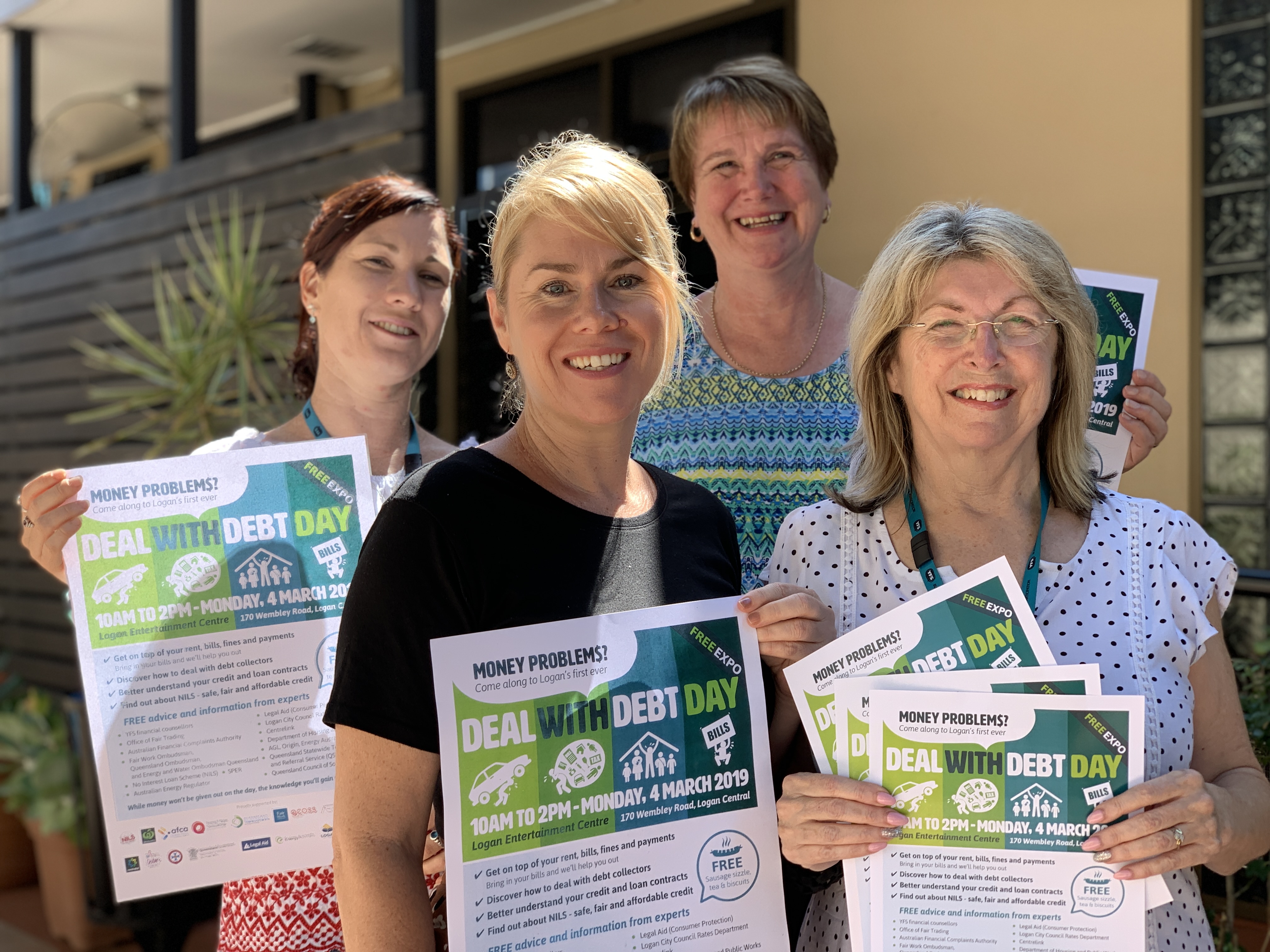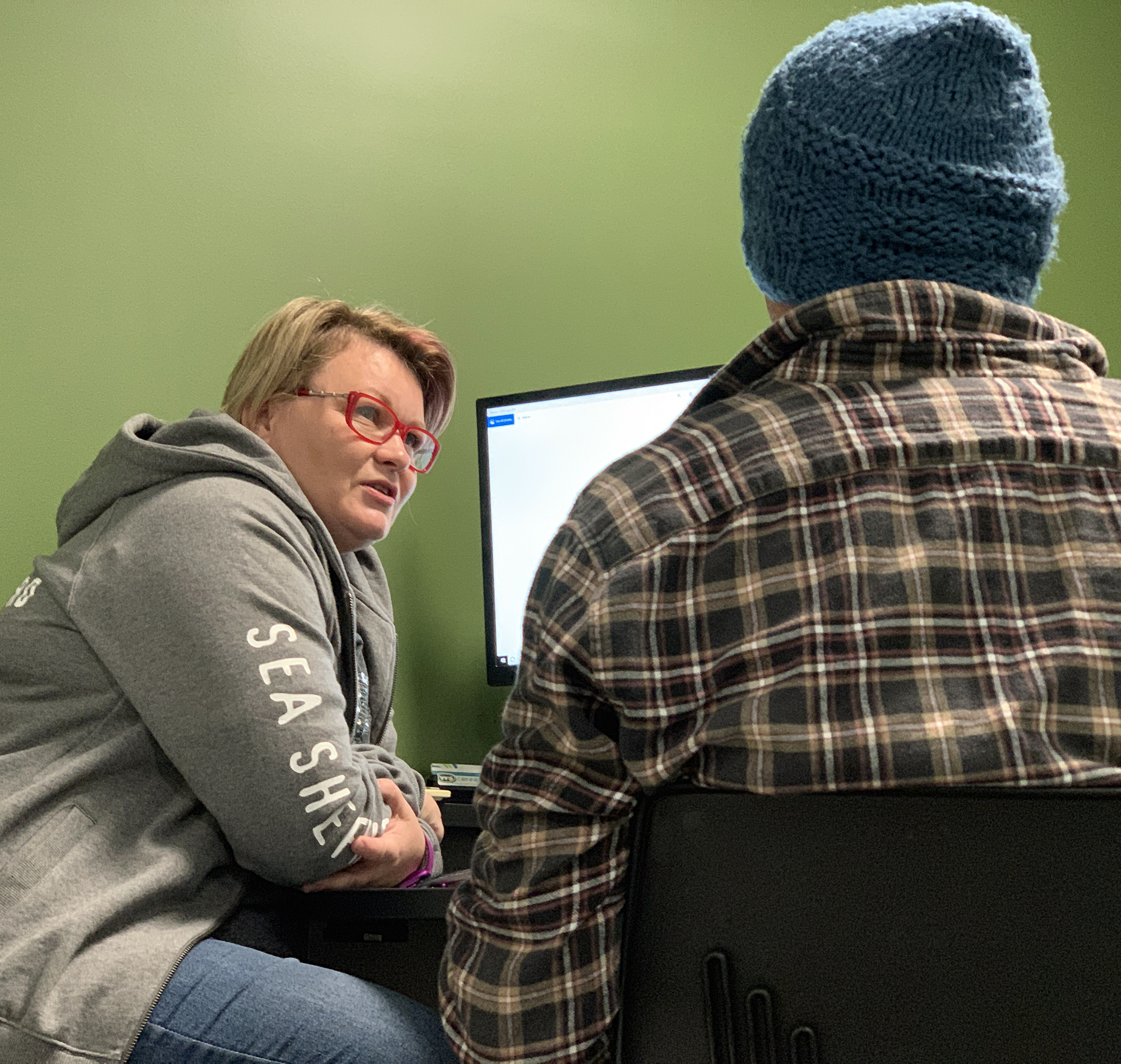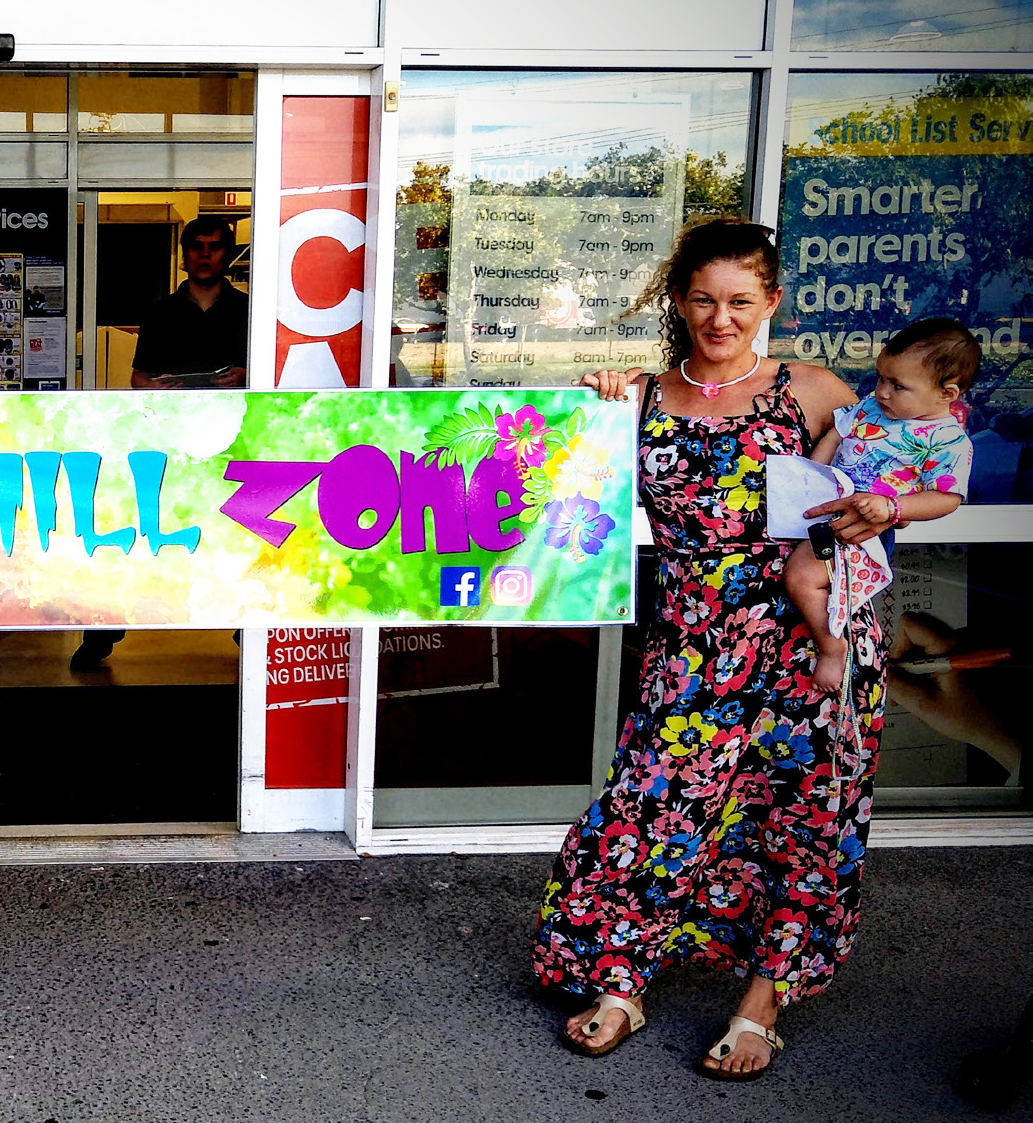Learning | Growing | Thriving
A decent income
More than 250 people got on-the-spot solutions and advice about financial problems at the Logan Deal with Debt Day in March 2019.

Poverty continues to be a huge challenge for most of the people we work with at YFS. In 2018-19 we worked with people to increase their income where possible, and to manage their money as well as possible.
Helping people increase their income through employment remained a focus for our ParentsNext team. YFS piloted ParentsNext from April 2016, supporting parents on government benefits to improve their work readiness. From July 2018, the Department of Employment, Skills, Small and Family Business rolled the program out nationally, with significant changes including a new compliance framework that has attracted negative media attention. YFS continued to treat ParentsNext as a supportive, respectful opportunity for parents to build their skills and confidence and overcome barriers to work.
YFS partnered with the Department of Housing and Public Works to offer Spark, a coaching program for public housing tenants who want to start small businesses, gain employment or volunteer. In 12 months to February 2019, our part-time Spark worker helped six tenants gain work, eight to start a business, six to access training and four to volunteer, while addressing complex barriers to participation. An evaluation of Spark suggests the success factors for the program are its individualised approach, holistic focus, range of options and strong partnerships.
Donations from Maurice Blackburn and MinterEllison Gold Coast enabled us to help YFS clients pay work-related expenses. These donations allowed us to buy tools for a housing client to set up as a handyman, driving lessons for a young mum so she could take up an apprenticeship, enrolment fees for training courses, and short-term rent for a woman fleeing domestic violence so she could maintain her job.
YFS’ Financial Counsellors tried new ways to help people manage their money better, including ways to reach people who find it hard to seek help. Our inaugural Deal with Debt Day at the Logan Entertainment Centre in March 2019 brought together 20 organisations, from energy companies to Centrelink. We also partnered with Logan’s largest facebook group, Mums’n’bubs Logan, to offer live Q&A sessions to the group’s 22,000 members.
Future focus
In 2019-20 YFS will pilot a micro-enterprise development program for people who have experienced adversity.
YFS will advocate for continued funding for our integrated financial counselling and capability services.
Learning how integrated responses help people move beyond crisis
We have improved our responses to homelessness and financial crisis over the past three years based on ongoing analysis. In 2018-19 we embedded our financial counselling and capability services into our front door, YFS Connect.
YFS Connect now combines our intake, advice, referral, money management, emergency relief and financial counselling services. This integration has improved the effectiveness, efficiency and targeting of our services.
YFS Connect responded to more than 11,600 requests for assistance in 2018-19, mostly relating to housing and/or financial crises. An integrated response enabled short-term crisis resolution to be accompanied by longer-term capacity building. For example, we used emergency relief funds to kickstart rent arrears repayment plans, while helping people develop budgets and implement strategies to get back on track.

Outcomes
In 2018-19, credit/debt issues, utilities, budgeting and rent arrears were the most common issues for clients of our YFS Connect Financial Counsellors and financial capability hub. 83% of these clients reported that their financial crises improved, while around 60% developed budgets, 60% improved their financial literacy and 40% developed payment plans.
Our Financial Counsellors supported 75 clients to negotiate relief for their debts, resulting in over $670,000 in unfair or unaffordable debt being waived.
We captured data about change in circumstance and capacity for 473 financial counselling and capability hub clients through the Department of Social Service’s SCORE outcome measurement tool. As shown at right, clients achieved significant improvements in financial resilience and material wellbeing.
Financial resilience
(based on a five point scale)
Material wellbeing
(based on a five point scale)
Meet cool entrepreneur Jaclyn
Jaclyn was at a local courthouse varying a domestic violence order when she came across a pamphlet about the Spark program.
“When I read it was an out of the box service for people who don’t necessarily want mainstream employment, I thought, ‘This is me’,” she said. “I’ve always had a vision for starting my own business and this pamphlet made me feel like it was doable”.

